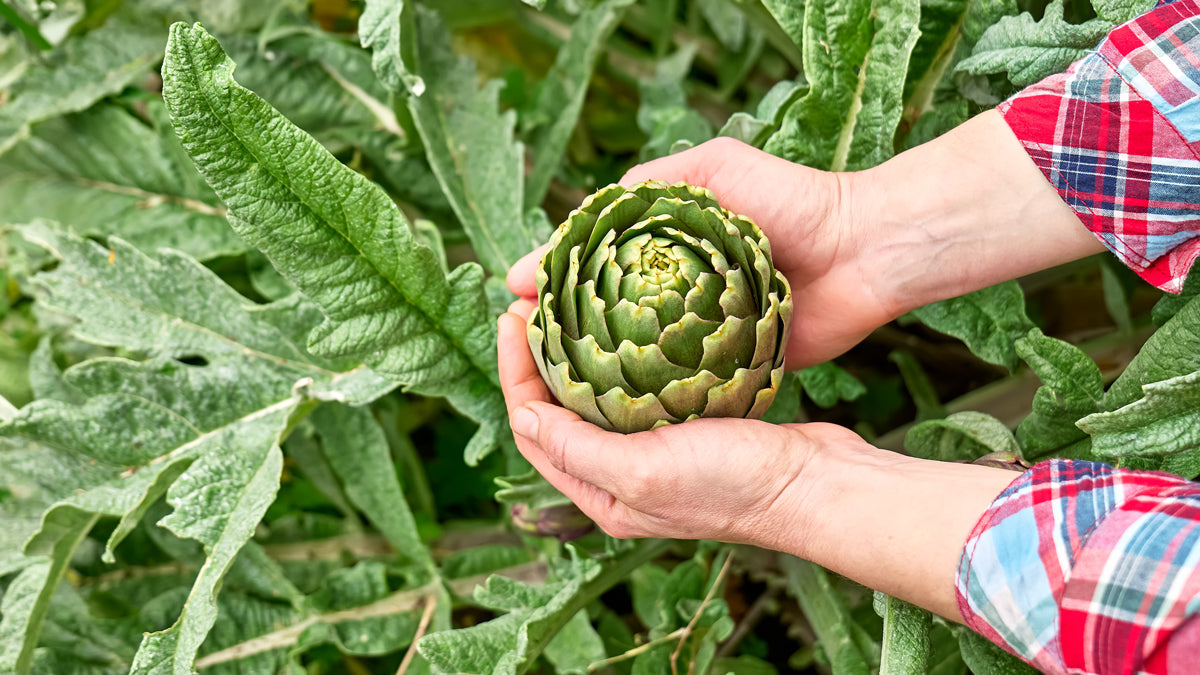Gardening comes in many forms and can be done by just about anyone, including children, city dwellers, and older adults. Even if you don't have your own backyard or a big space to devote to a garden, you can join a community garden or buy indoor house plants.
There are plenty of reasons why starting a garden can benefit your overall health, including by lowering stress, keeping you fit, and providing healthy ingredients for cooking. Let's look more closely at 10 benefits of gardening.
10 Benefits of Gardening
1. Provides low-intensity exercise
Considering it can help to build strength and improve flexibility, gardening is considered a form of low to moderate exercise by the Centers for Disease Control and Prevention (CDC).
Spending about 30 to 45 minutes outside in your garden can burn between 100 to 300 calories, depending on the conditions and exactly what you're planting. In terms of physical health benefits, gardening is similar to walking outside.
2. Boosts your sunshine exposure and vitamin D
Studies show that about 50% of the general population may be deficient in vitamin D. Doing any type of project outdoors is an ideal way to get some sunshine exposure on your skin, which leads to synthesis of vitamin D and a number of important health perks.
People with higher levels of vitamin D, which has been nicknamed "the sunshine vitamin," benefit from enhanced immune function, protection against chronic diseases and illnesses, improvements in bone and heart health, and often a boost in mood.
Sunshine also has a powerful effect on your circadian rhythm, which functions like your "internal clock." When your eyes take in light from the sun during the daytime, it can help you to sleep more deeply at nighttime, leading to more energy overall.
3. Can help connect you to your community
Want to meet more of your neighbors or like-minded people in your area? Join a community garden, in which everyone pitches in to grow plants in a shared space. If you live in a densely populated area, just working in your own garden for an hour or two can provide opportunities to meet or chat with other residents as they go about their daily routines.
Another way to connect with those living around you is to share gardening tools or to trade plants and produce. This way everyone winds up with more, but needs to buy less.
4. Increases your nutrient intake
Homegrown fruits, veggies, and herbs are typically rich in nutrients, since they're super fresh and in-season. For example, if you plant produce like leafy greens, berries, peppers, and tomatoes in your garden, you'll obtain plenty of essential vitamins and minerals including vitamins C, A and K, magnesium, calcium, and potassium.
These same fruits and veggies are also rich in disease-fighting antioxidants such as anthocyanins, carotenoids, and lycopene.
Among the most nutritious foods to consider adding to your garden include: kale, spinach, carrots, potatoes, cabbage, asparagus, beets, radish, and other leafy greens such as collard or turnip greens.
5. Helps you practice mindfulness
Turning off all electronic devices, stepping outside, and tending to your garden is a simple way to practice mindful living.
While you listen to the birds, smell the flowers, touch the soil, and breathe in fresh air, you make it easier for your mind to enter a "flow" state, in which you're actively engaged in the task you're completing.
Being in flow is associated with stress relief, as well as feelings of centeredness and contentment. Challenging yourself with hobbies and activities that require your full attention, including gardening, can also lead to other cognitive benefits like memory protection and enhanced creativity.
6. Provides all the benefits of nature
Piggybacking on the point above, research shows that spending time in "green spaces," such as your garden, can improve feelings of happiness. How much gardening do you have to do to lift your mood? About two hours each week doing something in nature seems to be enough to boost your mental health.
If you garden while barefoot, you'll also be practicing something called earthing (or grounding), in which you come into direct contact with the earth's electrical currents. This is thought to have a naturally calming effect on your nervous system, and it might even help to lower inflammation.

7. Saves you money on organic produce
Buying organic produce isn't always feasible depending on your budget. That's why it's a win-win to grow your own organic fruits, veggies, and herbs. Starting an organic garden shouldn't cost you much, but it will ensure that you're not consuming pesticides or other chemicals found in most conventional crops.
8. Encourages you to cook more at home
Once it's time to finally harvest your homegrown plants, the fun really begins. Enjoy using your fruits and veggies in healthy recipes such as salads, yogurt bowls, soups, or stir-fries as your practice mindful eating. You can also decorate your home with homegrown flowers, bringing some of the benefits of nature indoors.
9. Great activity to do with your kids/family
Kids often love to garden because it's such a tactile, and, let's face it, dirty experience. Gardening teaches kids tons about how the environment works, plus it's a great lesson in patience and dedication.
There's evidence that starting a garden with your kids will also support their sensory development, fine motor skills, body management skills, balance, coordination, and more.
10. Protects the environment
Of all the 10 benefits of gardening listed in this article, this is one of the most important. If each of us does our small part to grow food sustainably—meaning seasonally, locally, and organically—then we can all help to cut down on the consumption of foods that damage our planet.
The truth is it's resource intensive to grow fruits and veggies all year long when they're not in season, and then ship them far distances. It depletes many natural resources, uses energy for transportation, and often involves the use of pesticides and herbicides.
Gardening at home or in your community is one of the best ways to counteract this global issue. To make your garden as sustainable as possible, use as little water as you can (try capturing rain), choose appropriate plants for your location, minimize fertilizer, make your own compost, and save your seeds.





